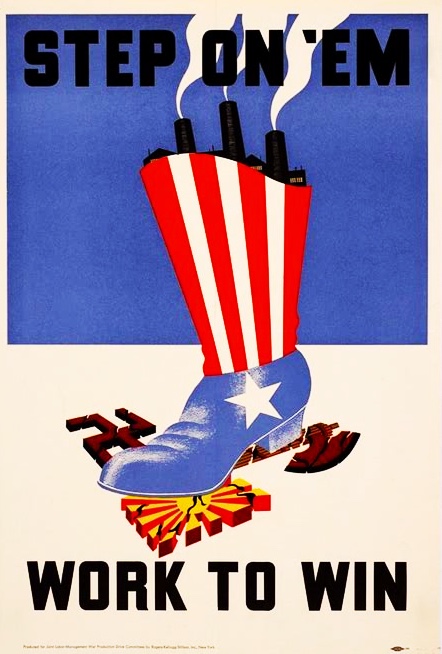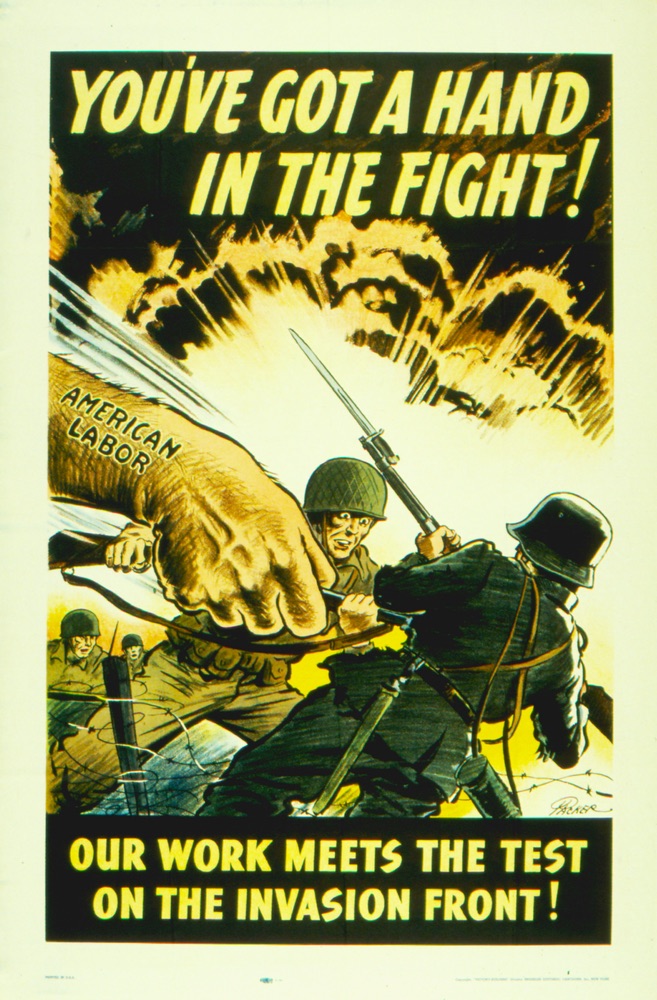Trump, tariffs, and the war on American workers

If someone were to say that war raises prices, so a country shouldn’t attack a country that has attacked them, it would seem almost a non sequiter. The first statement is almost certainly true, but it has no bearing on the second. If you’re attacked, you defend yourself or you die. Who cares about higher prices at that point?
One of the most interesting policy changes under Trump was regarding tariffs. Trump was willing to use tariffs as weapons to get better foreign trade deals. The general wisdom among the beltway crowd is that the best tariff policy is for America to remove them all unilaterally. Whether that’s true or not is a pure non-sequitur if other countries are using tariffs and dumping as weapons of war. It also makes the very elitist assumption that the only policy you can have is to remove them or have them permanent.
The justification for a failure to respond in kind is that tariffs on raw materials, for example, means that non-US companies get resources cheaper than American companies do. Which in turn means that they can make things cheaper, and be more successful. When we raise the price of raw materials only in America, we raise the price of every American-made good made from those raw materials everywhere in the world.
That means lost jobs, because it means American-made products are more expensive both in the United States and outside the United States.
But none of that matters if jobs have already been lost and are continually being lost because other countries—and even DC politicians and bureaucracies—are waging war against American workers.
It’s even worse if many of those jobs being lost are introductory jobs in higher-wage industries. Introductory jobs are essential to building a manufacturing base. Low-wage introductory jobs in restaurants, on farms, and in neighborhoods train kids to interact with customers and to manage and perform a job’s responsibilities. Higher-wage introductory jobs in manufacturing, in farming, and increasingly in data management and low-level programming, teach young adults resource management, interpersonal dynamics with other workers, and responsibility to the employer, the customer, and to their family.
The latter jobs also teach the basics of their industry in the real world. These jobs are essential to an economically sound America, and an economically sound America is essential to a secure America.
Economic security is National Security. And if you try to sacrifice economic security on the altar of national security, as Globalists are wont to do, you wind up losing both. — Peter Navarro (In Trump Time)

2020 wasn’t the first time American industry retooled to fight a war. But that requires American industry.
Who do you expect to take higher-paying jobs if you’ve shipped the lower-paying jobs that train people for them overseas? The answer, of course, is that the higher-paying jobs have to chase the lower-paying jobs overseas.
Trump proved in his first term that using tariffs as a weapon to bring back these jobs worked. His tariffs didn’t only bring back introductory manufacturing jobs, but the higher-paying manufacturing jobs they prepare people for.
Tariffs as weapons beat the hell out of having to use physical weapons and soldiers later—something Trump was able to avoid, a rarity before and after him. No country wants to lose a market the size of the United States for selling their goods. A short-term tariff to force a better deal? That’s a win: it means a short-term cost followed by a forever benefit.
Trump’s tariffs very clearly were threats to get other countries in line with free trade. That wasn’t some secret, covert action. It’s literally what he said, and it’s literally what he got for United States workers: opened markets abroad, an end to dumping, and thus more jobs and more expertise here in the United States.
The second part of the restoration of American jobs, of course, is getting barriers out of the way of creating them. Because there’s another level to bringing back low-wage jobs and high-wage jobs: bringing back American-made goods. A strong jobs market doesn’t just mean more jobs from existing manufacturers. It means more people with the skills and talent to create new businesses and even new industries here, locally. It means both better quality and faster response times in emergencies. It’s why we were able to respond as quickly as we did to manufacturing shortages during a literal nation-wide shutdown in 2020.
Much of the uniparty’s rapidly converging policies over the last several decades has been about driving introductory jobs out of the United States, driving manufacturing out of the United States, and making it impossible for Americans to create new businesses to replace the industries, businesses, and jobs that have been lost.
Fixing that is a good part of why the economy boomed under Trump, and it explains a lot about why workers support him so strongly. At best, Trump is the only politician who recognizes that there is a war against American workers. At worst, the rest of the uniparty actively sides against American workers and only Trump sides with them.
In response to Election 2024: Positioning for election 2024 is already started; the campaign will heat up very quickly after November 2022.
- The Parable of the Mexican Farmer
- Betsey Stevenson’s an example of why it’s so hard to create middle-class jobs, Jared Bernstein.
- Review: In Trump Time: Peter Navarro at Jerry@Goodreads
- Under cover of being about “the plague year” Navarro paints a picture of a DC culture that’s more about the ins vs. outs than about Democrats vs. Republicans.
- Sunday Talks: JD Vance vs. NBC on Trump Tax Policy: Sundance at The Last Refuge
- “For the previous twenty years, food prices had been increasingly controlled by Big Ag, and not by normal supply and demand. President Trump’s trade reset was disrupting this process. Food prices dropped, and our pantry costs were lowered.”
More American workers
- Tariff panic: Competing visions of America
- One of the amazing things missed in all the Trump tariff talks is that Trump seems to genuinely believe that Americans can compete on a level playing field. That’s very rare among the political class. As we head into the Sestercentennial it would be nice to believe in American workers again.
More President Donald Trump
- Tariff panic: Competing visions of America
- One of the amazing things missed in all the Trump tariff talks is that Trump seems to genuinely believe that Americans can compete on a level playing field. That’s very rare among the political class. As we head into the Sestercentennial it would be nice to believe in American workers again.
- Walk toward the fire
- Trump reassures crowd after assassination attempt fails.
- Trump and the January 6 defendants
- There appears to be a concerted effort on conservative forums to blame Trump for not doing anything for the January 6 prisoners and defendants. Is it true?
- Betrayal is bad advice
- It makes sense that the beltway would want to depress voter turnout by working class voters. It’s a mistake for Trump supporters to do so.
- Who is Trump running against?
- If Trump runs against Biden, he’ll lose, just like he did in 2020: by getting more votes but fewer ballots. It looks like Trump understands that. He’s not running against Biden. He’s running against the Democrats and Republicans who put Biden in power.
- 31 more pages with the topic President Donald Trump, and other related pages
More tariffs
- Tariff panic: Competing visions of America
- One of the amazing things missed in all the Trump tariff talks is that Trump seems to genuinely believe that Americans can compete on a level playing field. That’s very rare among the political class. As we head into the Sestercentennial it would be nice to believe in American workers again.
- My job fell in the (oil) well
- Through steel tariffs, we killed tens of thousands of jobs in industries that use steel by raising the cost of steel in the United States. Now Irwin M. Stelzer wants to do the same to industries that use oil. That is, all of them. Everyone uses energy.
